
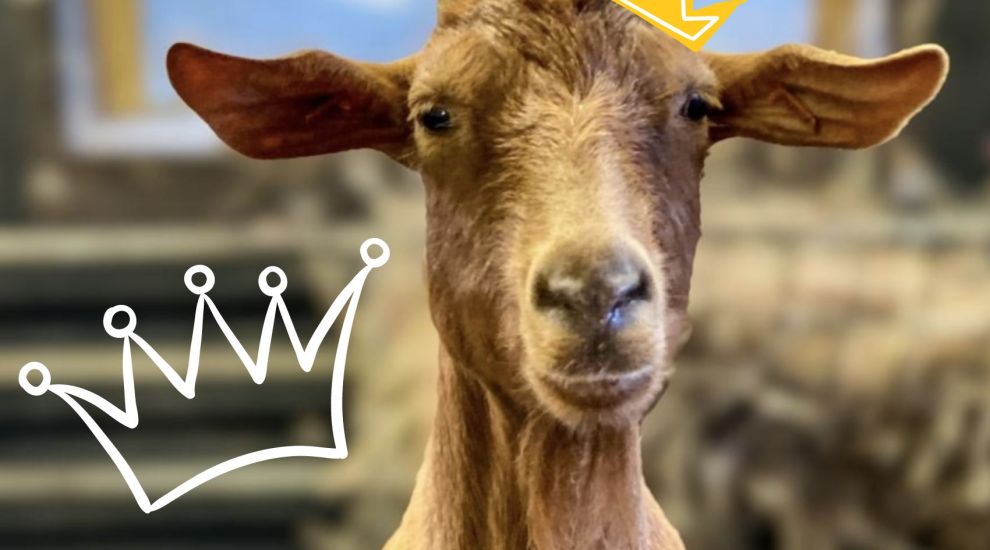

Jersey cows have been a favourite of the royals for many years, but there's a new farmyard breed in the Channel Islands challenging for the best-loved title.
When King Charles III visits Guernsey on Tuesday, he will bestow a new title on Guernsey's own breed of goats... but why are they so special?
From tomorrow, the Golden Guernsey breed will be renamed the 'Royal Golden Guernsey Goat' – marking the first time in recent history that the protected title has been granted to a livestock breed.
The title will apply to all Golden Guernseys in the island and elsewhere in the world. But the Royal title will not apply to the British Guernsey, a similar type of goat obtained by specific stages of breeding which shares genes with the Golden Guernsey breed and is similar in appearance.
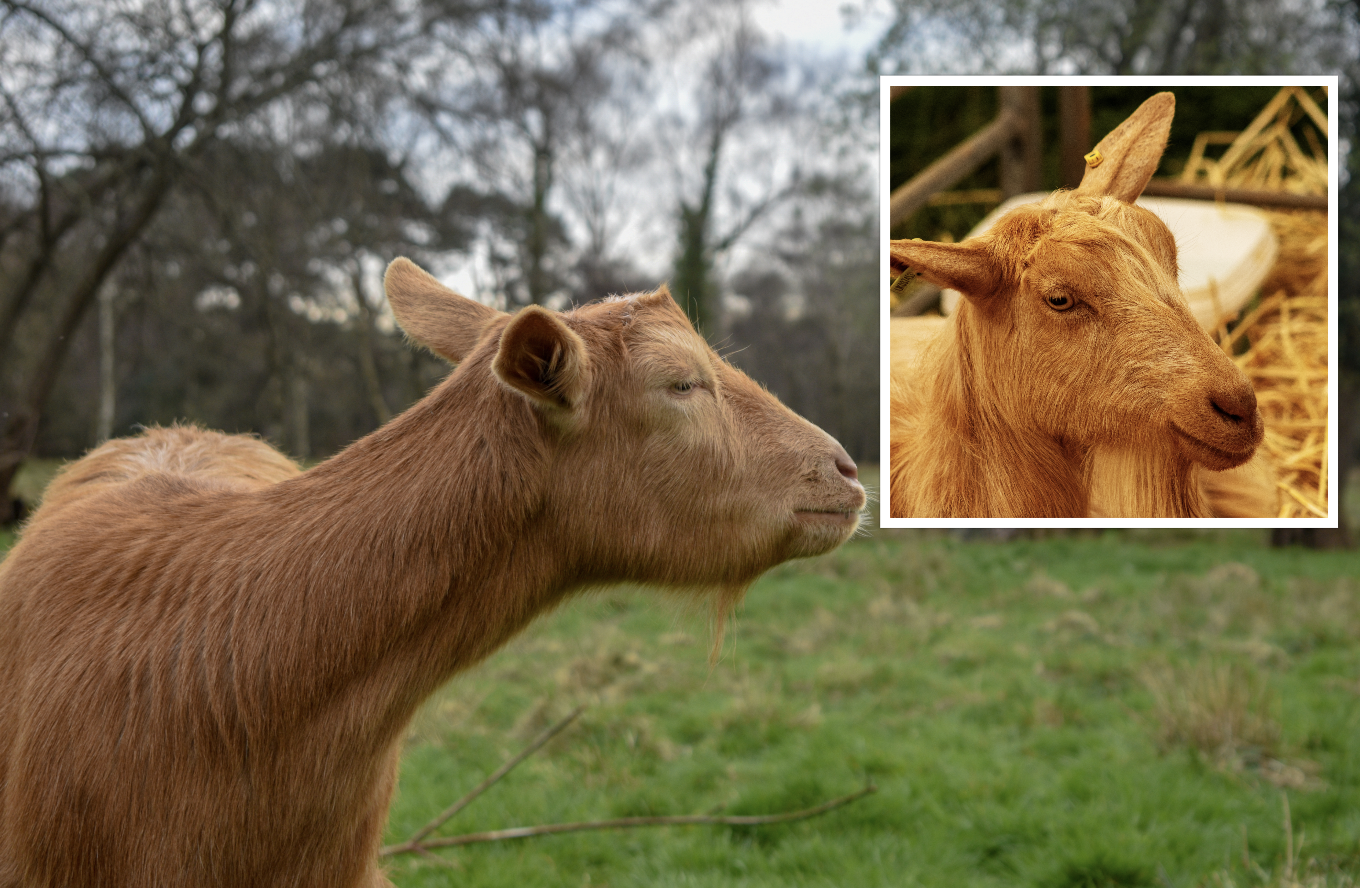
Pictured: A Royal Golden Guernsey Goat with (inset) a British Guernsey goat.
King Charles III will confer the title on Summerville Tamsin (pictured top and below) - an eight year old female Golden Guernsey - next Tuesday.
It is just one of the duties he will carry out during his first trip to the island as Monarch.
This duty is one that he will rarely carry out as King, as Royal titles are said to be "granted sparingly", on the advice of the Cabinet Office with strict standards applied.
His Majesty is Patron of the Rare Breeds Survival Trust, meaning the honour being bestowed on the Golden Guernsey is "wonderful recognition" of their breed, said Christopher Price, the Trust's Chief Executive.
“We are delighted that His Majesty is conferring this special title on this iconic native breed," he said.
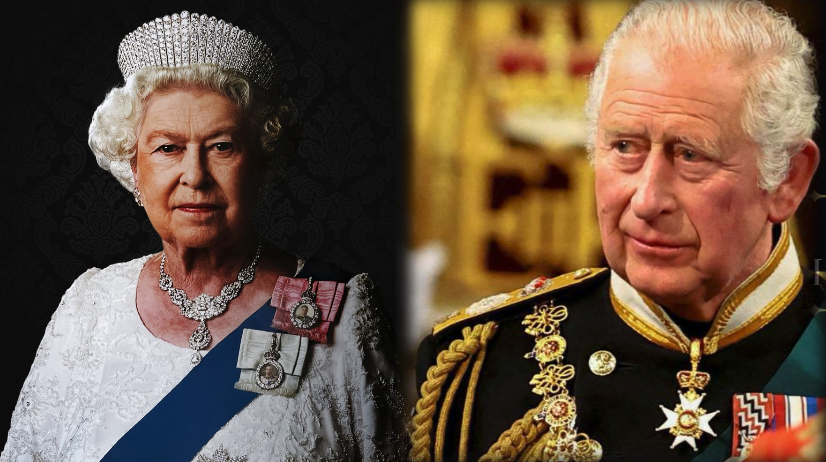
Pictured: Tuesday 16 July will see King Charles III make his first visit to Guernsey since he succeeded his mother, Queen Elizabeth II, as Monarch.
"It is a wonderful recognition of the Golden Guernsey’s cultural and historical significance as well as these goats’ value to biodiversity, to the environment and to sustainable food production. Golden Guernseys are really efficient milk producers, and the milk is great for making yoghurt or cheese. The breed also excels in conservation grazing which supports biodiversity. Being choosey in what they eat, their grazing can provide very specific environmental benefits. We are extremely grateful to His Majesty for his continued, greatly valued support for British rare native livestock and equine breeds.”
Keith Opie, President of the Golden Guernsey Goat Breed Society agreed that “this is an incredible honour and even more significant as the breed is classed as ‘at
risk’ by the Rare Breeds Survival Trust.
"It reached a low point in the 1990s but encouragingly it has since been gaining in popularity," he said.
"It is a unique breed, known to have been native to Guernsey for some 200 years, and is ideal for small holdings. These goats are gentle, smaller and more fine-boned than many British breeds, and produce delicious milk.”
His Excellency Lieutenant General Richard Cripwell CB, CBE, the Lieutenant-Governor of the Bailiwick of Guernsey said the King's first visit to the island as Monarch will be even more special with this special recognition being bestowed upon our goats.
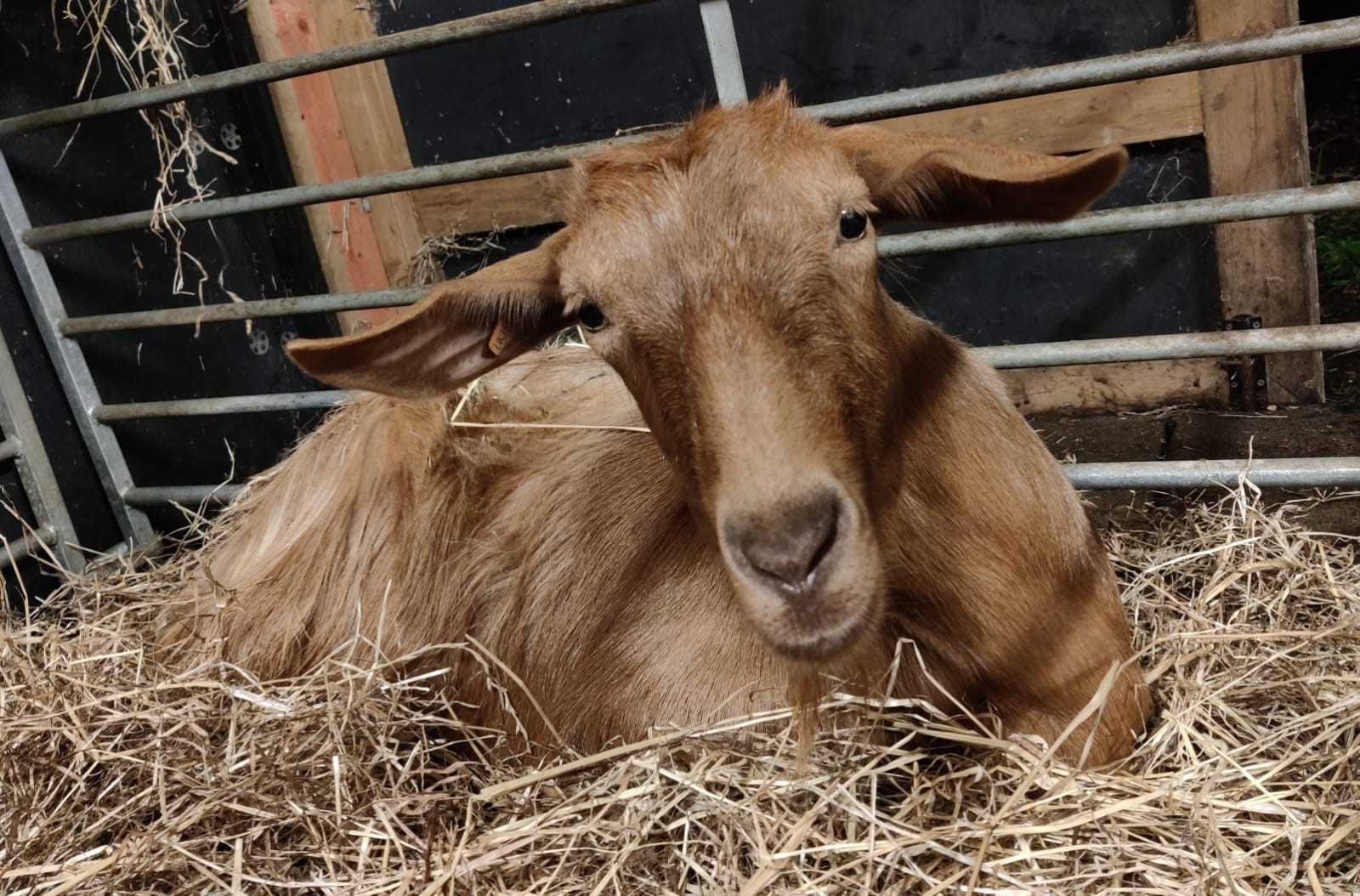
Pictured: King Charles III will confer the Royal title on the Golden Guernsey Goat breed by placing a special collar with an engraved bell on it around the neck of Summerville Tamsin.
“The recognition being granted to our special and rare breed, the Golden Guernsey, is a wonderful and fitting way to mark the significance of His Majesty’s first visit to the island as King, an island whose relationship with the Crown is at its core constitutionally as well as historically," he said.
"It’s a legacy and a tremendous honour that will stay with Guernsey for future generations.”
The Golden Guernsey Goat (Capra aegagrus hircus) is a dairy breed that has grown in popularity in recent years as a useful household goat, with pleasant temperament and a steady milk yield with good nutritional qualities. Their placid temperament and reliability in food conversion make them an economical proposition as a family animal.
The origin of the Golden Guernsey Goat is uncertain, though research on DNA by the University of Cordoba concluded that it is indigenous to Guernsey.
Golden-coloured goats have been known in Guernsey for some two hundred years, with the first documented reference published in 1826. In 1924, Miss Miriam Milbourne noticed a few golden goats amongst the local scrub herds, and it is largely thanks to her efforts that the golden goat has survived.
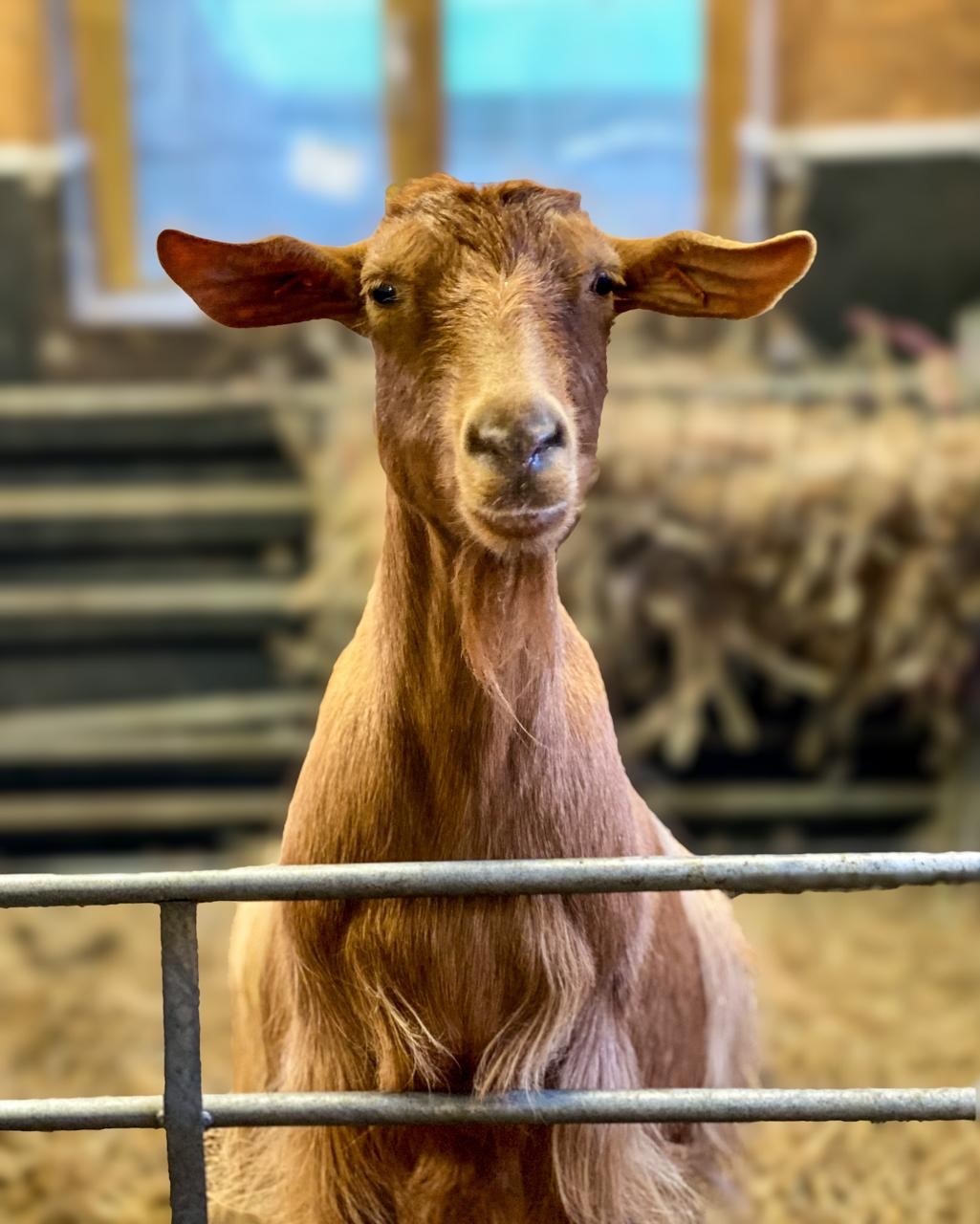
Pictured: Summerville Tamsin has been selected to play a central role in the King's visit to Guernsey next week.
She started keeping goats in 1937 and is credited with saving a small herd of Golden Guernsey goats from slaughter during the German occupation of Guernsey (1940-45) by hiding them for several years in her house in the north of the Island. Miss Milbourne began a breeding programme for Golden Guernseys in the early 1950s at the suggestion of Dr Tracey, a British Goat Society (BGS) Judge. With great determination, she increased her herd to around 30 animals and in 1965 the Golden Guernsey was first imported to the UK and the English Golden Guernsey Club, which became the Golden Guernsey Goat Society, was formed. In that same year a separate Golden Guernsey register was opened in the Guernsey Goat Society’s Herd Book.
The first successful exports to England were in 1967 and the inaugural questionnaire and newsletter of the UK club were issued in 1968, with the BGS Golden Guernsey register opened in 1971.
The Golden Guernsey is smaller and more fine-boned than other British milking goats, with a great variety in coat length. They are easy to handle, and the males are usually horned; often splendidly. The breed standard allows variation in the golden colour, along with small white markings on the head, but no Swiss markings are accepted. They have a straight or slightly dished facial line; the ears have a slight upturn at the tip and the neck is slender. The Golden Guernsey is a fairly small goat, with adult males weighing 190-200lbs and adult females from 120-130lbs.
It is classed as an ‘at risk’ breed by the Rare Breeds Survival Trust on its 2024-25 Watchlist, which reached a low point in the 1990’s. The Golden Guernsey was listed by the Food and Agriculture Organization (FAO) in 2007 as ‘endangered-maintained’. Population numbers reported to Domestic Animal Diversity Information System (DAD-IS) in 2019 were 1,381 for the Golden Guernsey (171 for the British Guernsey).
Doris and Betty put their best hoof forward
Guernsey Goat Trail strikes Gold
Comments
Comments on this story express the views of the commentator only, not Bailiwick Publishing. We are unable to guarantee the accuracy of any of those comments.